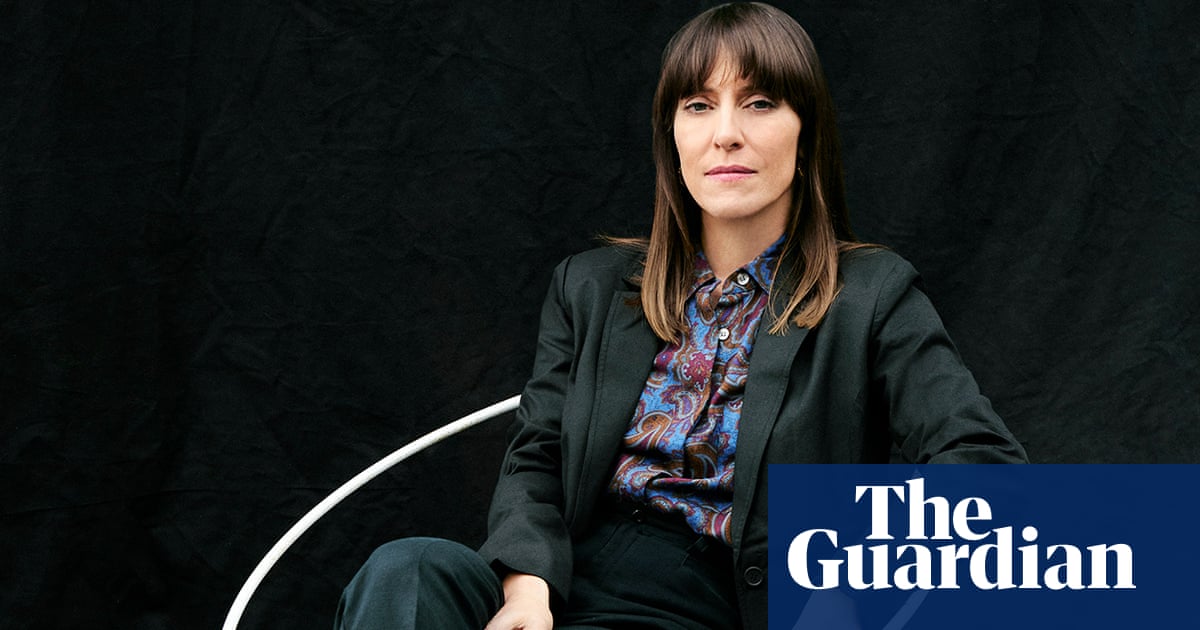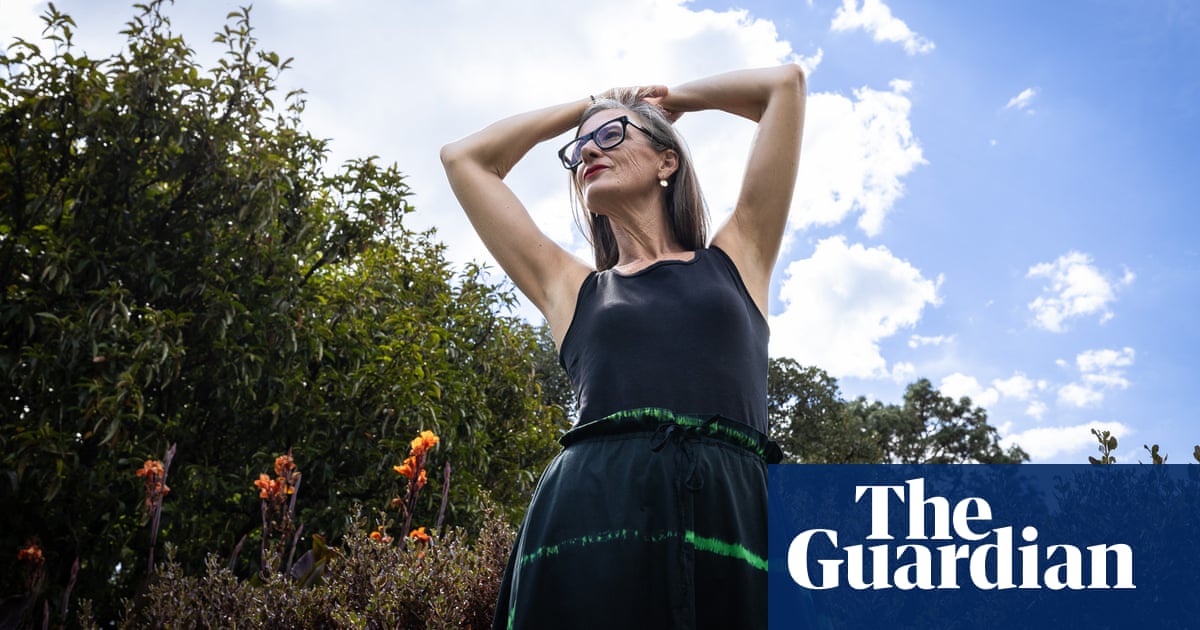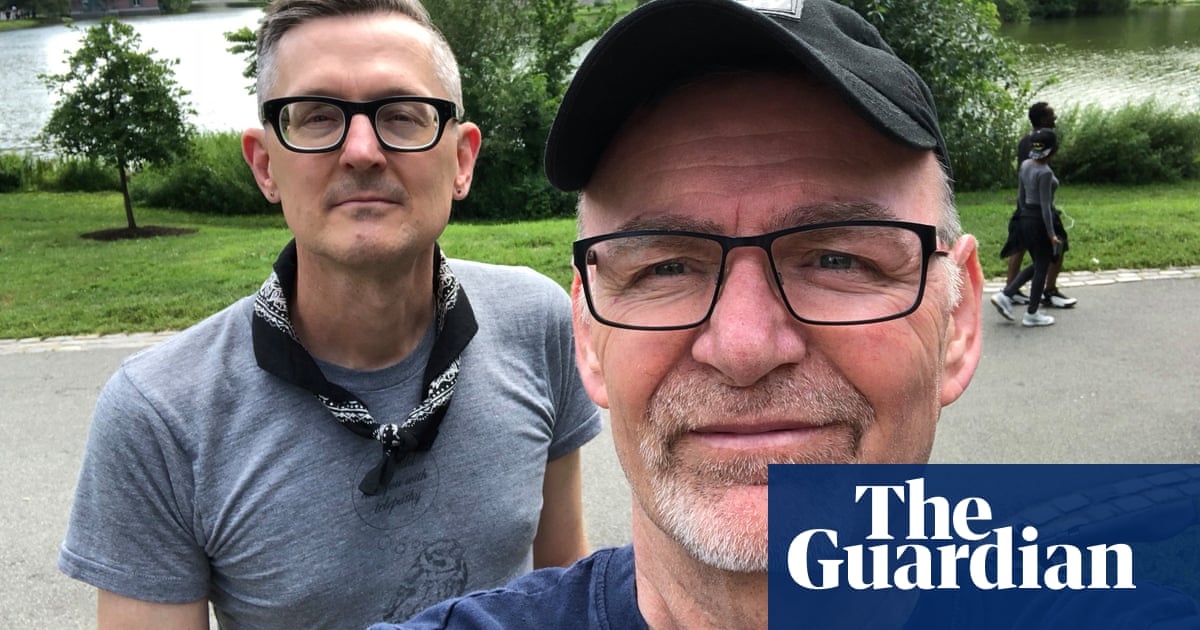
Things are not going according to plan. I have arranged to meet Penelope Skinner, whose play Lyonesse will open in the West End on 17 October, in a “quiet” cafe in Tufnell Park. Only the cafe is packed and it’s coming up to closing time. For great chunks of our conversation, which covers some sensitive topics, including Skinner’s own #MeToo experience, a waitress wields a loud vacuum cleaner nearby, threatening to drown us out. However Skinner, who is such a natural comic when she writes, is quick to laugh it off. It may not be the glamorous interview she was hoping for but life never quite winds up how you expect, does it?
Skinner started as an actor. Kind of. After completing a postgrad at the Oxford School of Drama she moved to London and hit the audition trail. She was almost immediately “100% unemployed, bar one understudy job and a tour of village halls with a new play”. Perhaps she was just a “bit shit” at acting, the straight-talking and self-deprecating playwright says. There was also something about the uncertainty of the profession – the constant rollercoaster of rejection – that fundamentally didn’t suit her.
Despite the faltering acting career, the theatre bug had well and truly bitten. She had also stumbled across a vibrant new playwrighting scene in London and watched a few plays, particularly Jack Thorne’s When You Cure Me, which seemed to speak directly to her. She began writing in earnest in her late 20s and turned out to be very good. Her first effort, Fucked, was a darkly gleaming one-woman play about a 25-year-old sex worker; it immediately transferred to Edinburgh.
Skinner’s breakthrough came with the award-winning The Village Bike, which opened at London’s Royal Court in 2011. As with many of her plays, it featured a surprising, messy and captivating female figure at the heart of things: a pregnant woman pushing against convention. Not nesting but rebellious. Not content but conflicted. Not happy but unrelentingly horny. The play starred a young Romola Garai, the first in a long line of powerful female actors instinctively drawn to Skinner’s work.
And now comes Lyonesse with two more striking stars, Kristin Scott Thomas and Lily James. Skinner is 45, and lives in Oxford with her husband, the actor Donald Sage Mackay, and five-year-old son. Her West End debut has been a long time coming. It started with a “transformational” solo holiday to Cornwall in 2015. That was the trip where Kristin Scott Thomas’s character, Elaine – a once-successful but now reclusive and gloriously eccentric actor – was envisaged. The first time we meet Elaine she’s wearing a swimming costume, giant welly boots, a swimming hat and fur coat … and is holding an axe.
Elaine was instantly alluring. “She’s probably some imagined version of myself,” says Skinner. “A fantasy. An aspiration. As they all are.”
Cornwall would provide the backdrop to the play – a wild and inspiring location, where Elaine has retreated from London life under mysterious circumstances. Skinner wouldn’t write the play until 2019 and, when she finally did, it turned out “a little crazy. I just put everything into it. It was four hours long and had nine characters. It was not a play that anyone would want to watch.” Skinner sent the play to Nicholas Hytner’s theatre, The Bridge, where the team suggested a reading, rather than committing to a full performance. Skinner laughs drily: “That was code for: you’ve obviously put a lot of work into this … ”
Skinner rewrote Lyonesse almost entirely, with only Elaine intact. After some prompting from her husband, she sent the new version to the director Ian Rickson. Rickson, who gave it to producing powerhouse Sonia Friedman, and the West End wheels were set in motion. When we meet, the company is in week three of rehearsals and Skinner has slightly reluctantly removed herself from proceedings: “On the day that I had to leave – because it was the right time to leave – I did have quite a weepy day. It’s this strange feeling. There’s the gang and they’re all in the world of your play and you have to step away. Let it go.”
That transition from imagined world to final production has, Skinner insists, been joyful in this instance. It isn’t always an easy process – particularly when it comes to working in TV. “It can be that you think you’ve written one story and then it turns out you’ve written something quite different,” she says. “There are so many choices between the page and the production and the majority of those decisions, particularly in film and TV, are still being made by men. That is something you have to negotiate in terms of whose story it is. It’s not always a bad thing but it is part of the challenge.”
The influence that men still wield over women’s stories underpins Skinner’s latest BBC series, The Following Events Are Based on a Pack of Lies, which she created alongside her older sister Ginny Skinner. The show follows an audacious conman, who wriggles his way into a number of women’s lives and mercilessly manipulates them – stealing from them, isolating and abusing them – until two women join forces and decide to fight back.
Similar power struggles run through Lyonesse, which features a trio of successful women – Elaine the actor, Kate the film development executive, and the studio boss Sue – who are all, in many disturbing and nuanced ways, still controlled by men. Elaine’s story hinges on an abusive relationship with a powerful male director who still holds all the power, even when he is dead. Skinner explains why Elaine, and not her abuser, is centre stage in Lyonesse. “The story I was interested in telling is the story of the life that has been lost, the light that has been put out, by incidents of #MeToo,” she says. “We’re still focused on the perpetrators, but what I want to explore is that unseen life that has been lost and damaged.”
Skinner alludes to her own #MeToo experience, which happened around the reading of her first play. She insists the event was “minor” – and that the man involved no longer works in the industry – but reflects that, had she been younger and more vulnerable, it might have put her off a life in theatre. She’s quick to point out that, while #MeToo may have made a lot of powerful men think twice about their actions, it hasn’t been quite so transformational for women; that perhaps things haven’t changed as much as we might have hoped.
That idea of a stuttering #MeToo movement – of modern-day women more compromised than they’d like to think – underpins Kate’s storyline in Lyonesse. Lily James, who plays Kate, is a typically complex character from Skinner: drawn to the freedom she senses in Elaine but still held back by a mixture of convention, ambition and societal expectation. Skinner sees aspects of herself in Kate, but gets frustrated when people presume her characters are speaking for her.
“I think there’s a tendency to assume autobiography in my work,” she says. “People think that the things characters think and feel and say are the things you think and feel and say, and that’s not ever the case. I’m much more interested in exploring the self through all my characters and not necessarily trying to control that narrative.”
When I suggest to Skinner that children often take a back seat in her work; that husbands get fairly short shrift and powerful women in the workplace can come across as fairly self-serving, Skinner balks. She’s not nudging at specific themes or ideas, she insists. She’s simply writing life as she sees it, with the hope that the audience may find something of themselves in the world she reflects on stage. And if the work doesn’t resonate with her audience? Skinner will just keep on writing anyway.
“I’d write plays even if somebody said: your plays are never going to be put on. Ever. I would still write them because I love being inside them.” Skinner laughs modestly – happy to please only herself, as long as it’s a world of her own making.












